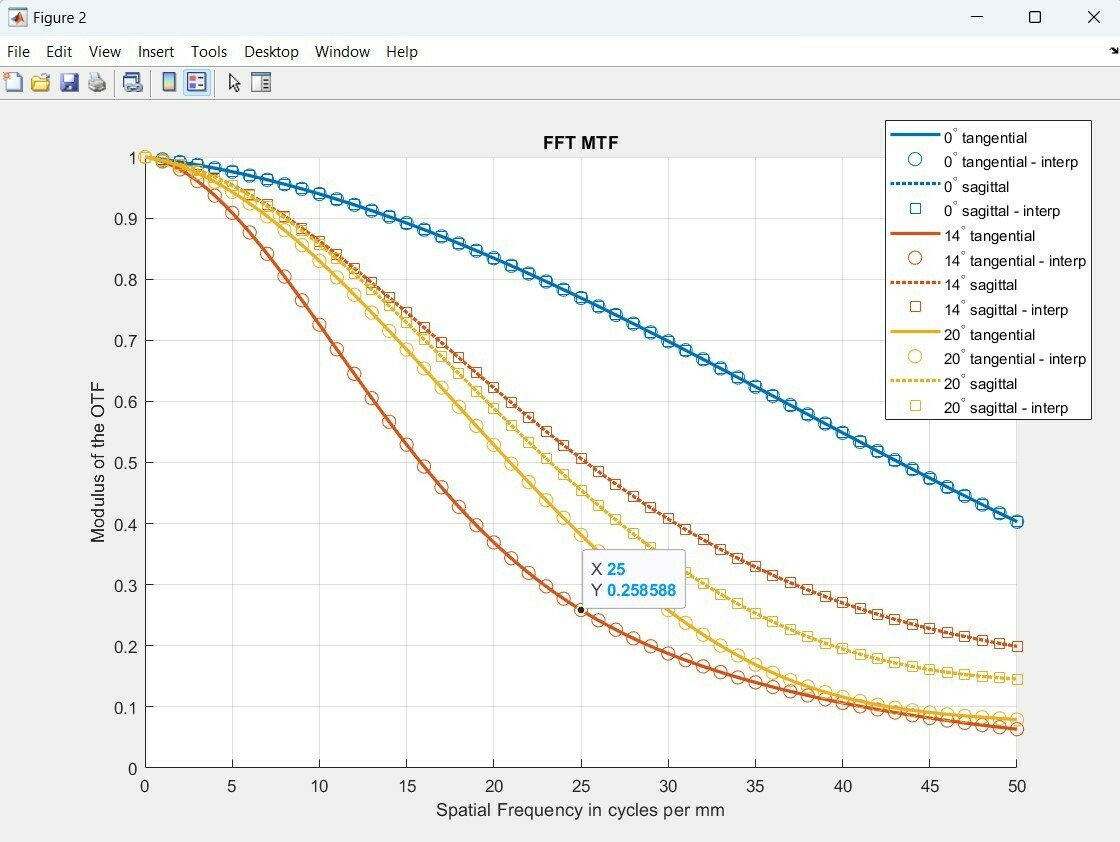Hi,
I followed the sample script and extract the mtf data using
xRaw = data.XData.Data
yRaw = data.YData.Data
and what I realized is that the MTF is not given in integer location. instead of report the MTF at 50lp/mm it’s reporting MTF at 49.9136879lp/mm.
is there any way to get the MTF right at the rounded location?
Thanks,
Yu
Best answer by YuY
View original




